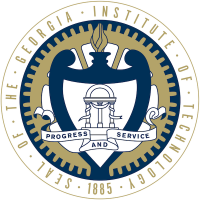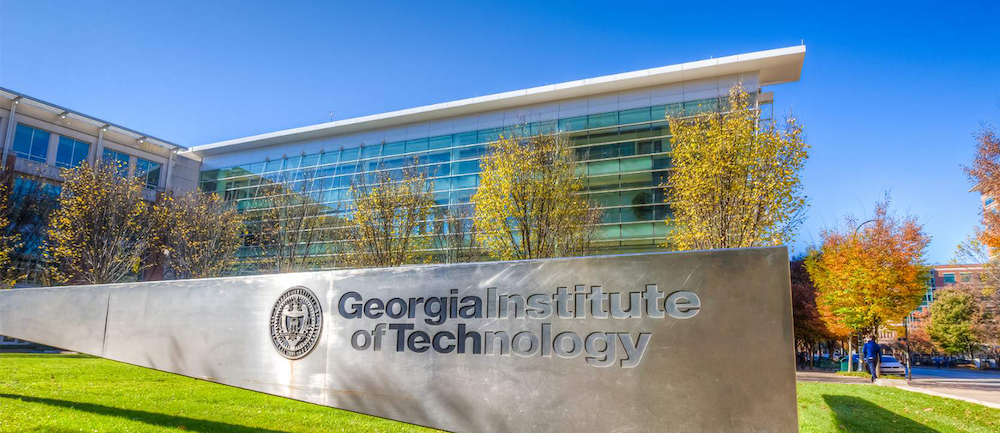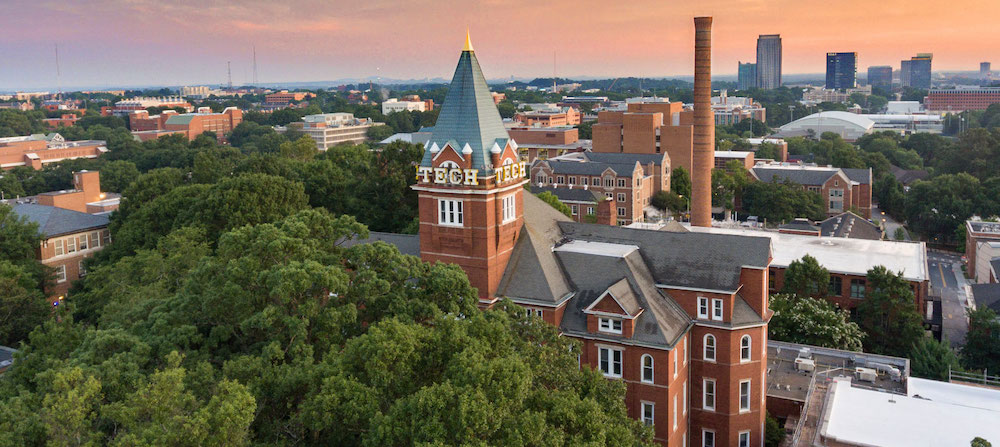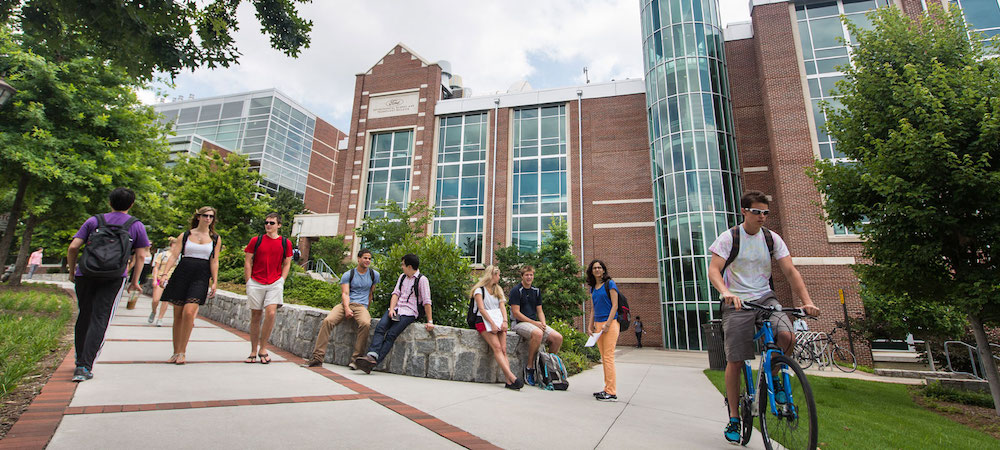The Ivy Scholars guide to Georgia Tech’s culture, admissions, and other essential information for prospective students and their families.
Location: Atlanta, Georgia
Mascot: Buzz the Yellowjacket
Type: Public Research Institution
Population: 32,700 (16,000 undergrads)

The Georgia Institute of Technology was founded after the Civil War, in order to provide the South with a technical college in the tradition of MIT. WIth many long lived traditions and a strong sense of school spirit, camaraderie among students is high. While the athletic program is notable, Georgia Tech is best known for its academic rigor, priding itself on the difficulty of its classes and the skill and knowledge of its graduates.

Year Founded: 1885
4 Year Graduation Rate: 40%
Gender Distribution: 63% Male, 37% Female
Acceptance Rate: 23%
Residency: 60% in state, 17% out of state, 23% international
Location Type: Urban
Schedule System: Semesters
Student/Faculty Ratio: 22:1
Average Class Size: 25
Demographics: 49% Caucasian, 21% Asian, 16% Other, 7% Hispanic, 7% Black
US News Rankings:
Independent Rankings:
Application Deadlines:
Notification Dates:
Acceptance Rates:
Average Applicant Pool: 37,000
Average Number of Applicants Accepted: 8,400
Average Number Enrolled: 3,100
Application Systems: Common App
Average GPA: 4.07 weighted
SAT Scores: 25th% – 1400, 75th% – 1530
ACT Scores: 25th% – 31, 75th% – 34
*Test mandatory. Writing sections are not required.
Demonstrated Interest:
Georgia Tech does consider demonstrated interest.
Recommendation Letter Policies:
Recommendations are optional, but students may choose to submit one letter from a counselor, and one from a teacher. They recommend that the teacher be of an academic subject who knows you well. Additional recommendations are not accepted.
Georgia Tech Essay Prompts:
Georgia Tech Essay Writing Tips
Special Notes:
Transfer:
Admissions Criteria:
The criteria the school considers very important are: course rigor, GPA, and extracurriculars. They look for a pattern in a student’s extracurriculars, and see if it matches with their intended major.
The factors they consider important are: class rank, essays, test scores, state residency, geographic origin, character, and talent. It is easier for Georgia residents to get into the school, although their admission is not guaranteed. The school strives for geographic diversity both from within Georgia, and from around the country. Around 60% of the student body, and each admitted class, is from Georgia.
The factors which are considered are: First-generation status, legacy status, recommendations, race/ethnicity, and level of interest.
Recruited athletes do have an advantage in admissions, so long as they are able to do the work academically, as Georgia Tech prides itself on student-athletes.
What is Georgia Tech Looking For?
All candidates are evaluated using a holistic review, where all aspects of an application are considered as a whole. Admissions officers look for students who will positively contribute to the campus community, and look for these character traits in an applicant: commitment, responsibility, motivation, leadership, initiative, and entrepreneurship.
Due to the gender imbalance, female applicants have an edge in admissions. This does not mean that the requirements are laxer for female applicants, but that more qualified female candidates are admitted due to the lower total number of female applicants and students.
The school has a long commitment to diversity, and seeks through recruitment to maintain a high level of admissions for minority and otherwise underserved students, both from within Georgia and around the country. Here, they are in direct competition with MIT and Caltech for the most qualified candidates.
Georgia Tech looks for students who have demonstrated leadership in their activities, especially outside of the classroom. The activities list is key to demonstrating this, and showing the student’s passion for and involvement with their areas of interest and their broader community. The school wants students who will contribute, so they look for past examples of the student doing exactly that.
Georgia Tech Strategy:
While admissions rates are higher for students who apply Early Action, this is not because the requirements are laxer. First, recruited athletes all apply EA, and second, the overall pool is smaller, meaning more qualified applicants are admitted. While this may boost chances some, it is not as large a factor as Early Decision can be.
They school does consider demonstrated interest, and this is an easy way to improve chances of admission. The school’s yield rate is around 40%, and while this is not bad, admissions officers do like assurances that the students they admit will attend.
While letters of recommendation are optional they are recommended, and students should consider submitting them. This is especially the case when the teacher can support other aspects of an application, such as the students academic passions, leadership abilities, or talents in or outside of the classroom.
The school is known for its difficult and demanding academics, and much like Caltech, expects students to be both able and willing to do the work required of them. The school is also known for often requiring five years to graduate, due to the number of required courses and the length of majors. While the entirety of the school experience isn’t work, students should expect to need to study a great deal and work hard if they are going to Georgia Tech.
Finally, the school is similar to Caltech in that it is much more focused on the practical elements of engineering and science than the theoretical. While there are humanities majors, and it is not as devoted to science and technology alone, those are still the main focus of the school.Humanities students can still thrive there however, and may have an easier time getting admitted due to there being far less competition for spots.
Enter your information below and submit for access to the guide.
Schools:
Core Requirements:
Courses of Study:
AP Credit Policies:

Honors Programs:
Research Availability:
Study Abroad:
Business Options:
Pre-Med Options:
Pre-Law Options:
Computer Science Options:
Additional Specialty Programs:
Programs for High Schoolers:

Mission and Values:
Residential Housing System:
The school runs residence halls for freshmen, which are primarily found on East campus, and apartment style housing open to upperclassmen, which is all on West campus. The school also has living learning communities, which are often located within other buildings, and form smaller units of students who are interested in the same academic topics. These include the honors program. Each residence hall has its own character and traditions.
Housing Statistics:
Campus & Surrounding Area:
Transportation:
Traditions:
Student-Run Organizations:
Sports:
Greek Life:
Nightlife:

Yearly Cost of Attendance:
Financial Aid:
Georgia Tech has a separate application for student aid which must be filled out, alongside FAFSA and the CSS profile. All of these should be completed by the due date; while applications will be accepted late, priority is given to those that are on time. Funding is provided based on both demonstrated student need and academic merit.
Additional Financial Aid & Student Loan Information
Scholarships:
The Georgia Tech Promise Program is a scholarship fund dedicated to meeting the full need for the most underprivileged students in Georgia. It is only open to residents of Georgia. The HOPE and Zell Miller Scholarships are merit based academic scholarships available to students.

Ivy Scholars is the leading educational consultant in Sugar Land, Texas, providing admissions coaching, test prep, and more to help students enroll at top tier schools.

Call us now: +1 (281) 215-5148
.
Get expert tips, admissions updates, and resources delivered straight to your inbox.


